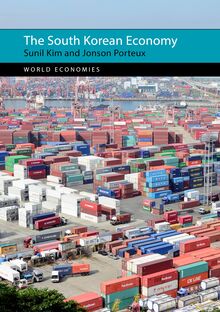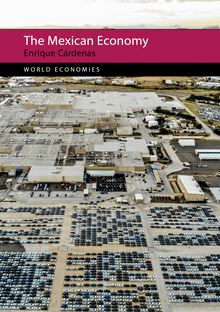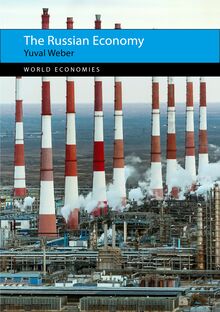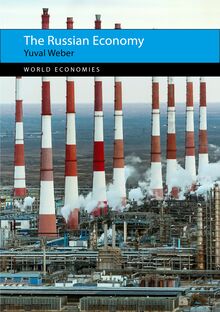-
 Univers
Univers
-
 Ebooks
Ebooks
-
 Livres audio
Livres audio
-
 Presse
Presse
-
 Podcasts
Podcasts
-
 BD
BD
-
 Documents
Documents
-
- Cours
- Révisions
- Ressources pédagogiques
- Sciences de l’éducation
- Manuels scolaires
- Langues
- Travaux de classe
- Annales de BEP
- Etudes supérieures
- Maternelle et primaire
- Fiches de lecture
- Orientation scolaire
- Méthodologie
- Corrigés de devoir
- Annales d’examens et concours
- Annales du bac
- Annales du brevet
- Rapports de stage
La lecture à portée de main
Découvre YouScribe en t'inscrivant gratuitement
Je m'inscrisDécouvre YouScribe en t'inscrivant gratuitement
Je m'inscrisEn savoir plus
En savoir plus

Description
Since Tsarist times, Russia’s leaders, rather than pursue economic growth for its own sake, have sought control over economic activity as a means to manage their own support base, respond to perceived security threats and to facilitate their wider geopolitical ambitions. Balancing the needs of an authoritarian state with the tentative and inconsistent use of the market has defined Russia’s modern economic history from the nineteenth-century Stolypin reforms to Lenin’s New Economic Policy through to the high Soviet years, Gorbachev’s perestroika, and Yeltsin and Gaidar’s shock therapy. And it is no more evident today than in Putin’s management of Russia’s natural resource-based economy.
Yuval Weber provides a concise economic history of modern Russia, which explains how its economy works both at an economic level but also strategically serving its elites’ personal and political agendas. At a time when the global importance of Russia’s oil and gas reserves is in full view, the book examines the Russian Petrostate and considers the long-term challenges for an economy reliant on natural resources for its resilience. The country’s regional imbalances, the demands of its huge military-industrial complex and the legacy of centralization are considered alongside the rising consumerism of its citizens, and other human factors, such as ethnicity, health and demography.
The book offers readers seeking to understand Russia’s economic resilience in an increasingly fractured global economy, an illuminating historical perspective on Russia’s political economy and the power structures underpinning Putin’s governance.
Introduction: “Surely the goat will be dead”
1. Power versus markets
2. Russian economic reform in historical perspective
3. How Putin’s economy is governed: commanding heights and controlling elites
4. Measuring Putin’s economy: the victory of resilience over growth
5. Social factors in Putin’s Russia
6. The Russia you see is the Russia you get: formalizing informality and informalizing power via sistema
Conclusion: resilience, war and Russia’s future
Chronology of Russian history
Sujets
Political Economy
International Relations
Economic History
Political Science
Industries
Former Soviet Union
Vladímir Putin
Ucrania
General officer
Vladimir Putin
Russian
Russia
Petroleum
International trade
Energy
Economics
Énergie
World
General
History
International
Gazprom
Industrie
Vladimir Poutine
Ukraine
Russie
Informations
| Publié par | Agenda Publishing |
| Date de parution | 04 mai 2023 |
| Nombre de lectures | 1 |
| EAN13 | 9781788215329 |
| Langue | English |
| Poids de l'ouvrage | 6 Mo |
Informations légales : prix de location à la page 0,1500€. Cette information est donnée uniquement à titre indicatif conformément à la législation en vigueur.
Extrait
-
 Univers
Univers
-
 Ebooks
Ebooks
-
 Livres audio
Livres audio
-
 Presse
Presse
-
 Podcasts
Podcasts
-
 BD
BD
-
 Documents
Documents
-
Jeunesse
-
Littérature
-
Ressources professionnelles
-
Santé et bien-être
-
Savoirs
-
Education
-
Loisirs et hobbies
-
Art, musique et cinéma
-
Actualité et débat de société
-
Jeunesse
-
Littérature
-
Ressources professionnelles
-
Santé et bien-être
-
Savoirs
-
Education
-
Loisirs et hobbies
-
Art, musique et cinéma
-
Actualité et débat de société
-
Actualités
-
Lifestyle
-
Presse jeunesse
-
Presse professionnelle
-
Pratique
-
Presse sportive
-
Presse internationale
-
Culture & Médias
-
Action et Aventures
-
Science-fiction et Fantasy
-
Société
-
Jeunesse
-
Littérature
-
Ressources professionnelles
-
Santé et bien-être
-
Savoirs
-
Education
-
Loisirs et hobbies
-
Art, musique et cinéma
-
Actualité et débat de société
- Cours
- Révisions
- Ressources pédagogiques
- Sciences de l’éducation
- Manuels scolaires
- Langues
- Travaux de classe
- Annales de BEP
- Etudes supérieures
- Maternelle et primaire
- Fiches de lecture
- Orientation scolaire
- Méthodologie
- Corrigés de devoir
- Annales d’examens et concours
- Annales du bac
- Annales du brevet
- Rapports de stage










